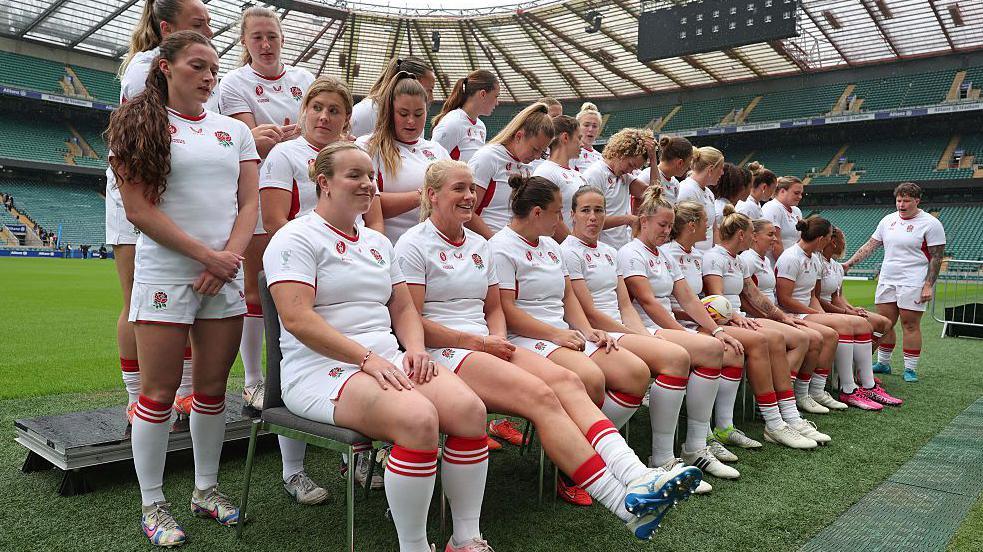The anticipation is palpable as the 2025 Women’s Rugby World Cup approaches, set to take place in England from August 22 to September 27. With only a week remaining until the tournament kicks off, teams across the globe are finalizing their preparations, while fans are gearing up for what promises to be an exciting series of matches. This tournament stands out, not just for its competitive edge but also for the presence of favorable home-ground conditions for the English team, known as the Red Roses.
England, ranked number one in the world since November 2020, embodies an impressive record with only one loss in their last 58 matches—a setback against New Zealand in the final of the previous World Cup held in 2022. Head coach John Mitchell is aware that the burden of expectation is heavy as they aim to reclaim their title in front of a home crowd at the Allianz Stadium in Twickenham. The team will open their campaign against the United States in Sunderland, followed by matches against Samoa and Australia in Pool A.
Mitchell has emphasized the importance of mental resilience, stating, “With our mental-skills support, we are helping the girls individually to unpack and bring closure to their experiences.” He believes that the setbacks from the previous World Cup have equipped them with the necessary knowledge and experience to excel in this year’s competition. Should the tournament unfold according to current rankings, England may face familiar opponents, including Scotland and France, in the knockout stages.
Meanwhile, Ireland, who have made remarkable strides in the world rankings, now sit at fifth, a significant improvement from their previous position in 10th. Their transformation, particularly marked by a stunning victory over New Zealand in September 2024, showcases their development as genuine contenders. However, their aspirations for success may hinge on the fitness of star player Aoife Wafer, whose comeback from injury is eagerly anticipated.
As the competition looms, Ireland will play Japan and Spain, ultimately facing New Zealand in their group matches. A repeat victory over the Black Ferns may bolster their chances in the knockout rounds. Following their warm-up games, Ireland displayed resilience but will need to maintain their momentum in order to advance deep into the tournament.
Scotland’s situation presents challenges as well, with the squad grappling with a combination of recent losses and off-field disruptions. Coach Bryan Easson is set to leave his position after the World Cup, exacerbating instability within the team. Scotland’s captain, Rachel Malcolm, has expressed her determination to foster a positive team culture, yet acknowledges the turbulence affecting squad morale.
Wales, too, is navigating a unique path, with expectations tempered by injuries and internal issues. Co-captain Alex Callender’s fitness remains in doubt, highlighting the team’s precarious position going into their opener against Scotland. Head coach Sean Lynn has articulated the need to shift focus post their Australian tour to prioritize the World Cup. Players have openly described the environment as improved, signifying hope amid adversity.
On an international scale, New Zealand and Canada are formidable competitors, both ranked in the top three and known for their competitive spirits. New Zealand, historically dominant, aims to leverage their past experiences and recent draw against Canada as they prepare for the upcoming challenges. Canada has also attracted attention with their fundraising initiatives and strong fan support, showcasing the depth of talent in the Women’s Rugby scene.
The tournament will feature a total of 16 teams, an expansion from the previous 12, further enriching the competition. Brazil enters the mix for its inaugural appearance, alongside Fiji, seeking opportunity and growth. More than 300,000 tickets have been sold across various venues in England, signaling a robust interest in women’s rugby that bodes well for attendance records.
As the countdown to the World Cup continues, the stage is set for unprecedented competition, showcasing the extraordinary talent and determination of female athletes around the globe. Fans are primed, players are focused, and the excitement of the tournament promises to leave an indelible mark on the sport’s history. The 2025 Women’s Rugby World Cup is not just a sporting event; it’s a celebration of women’s sports and the growing global interest and investment in rugby. With such dynamic narratives unfolding, this tournament is sure to deliver thrilling matches and memorable moments.












